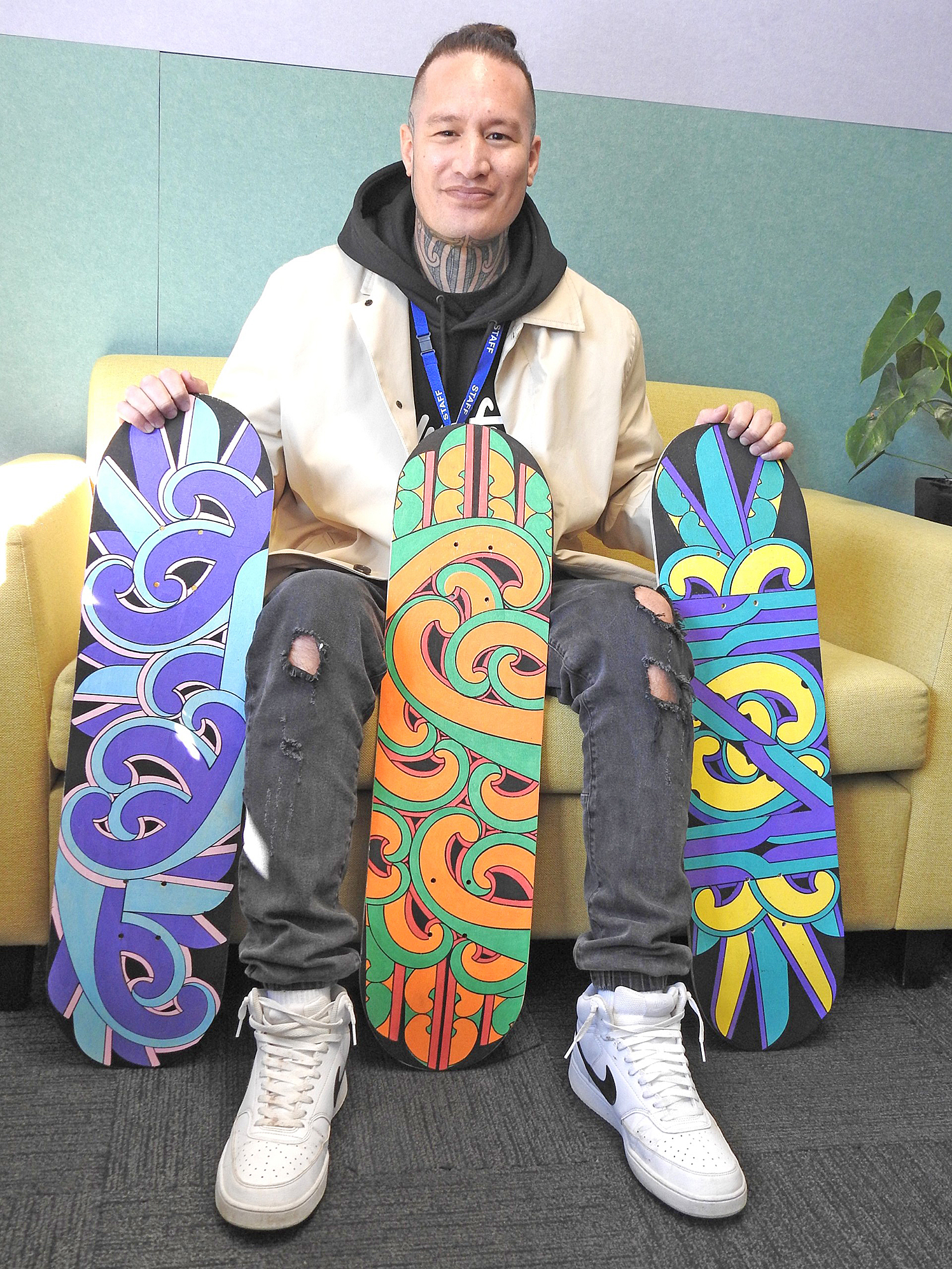Art, aroha, and brotherhood – Khan’s mission to support tāne

TANE ORA: Health coach and artist Khan Harawira supports tāne through listening and creativity. Photo Kathy Forsyth E5610-01
Kathy Forsyth
Khan Harawira is a health coach and artist who loves what he does.
Working with tāne (men) across Whakatāne through the Eastern Bay Primary Health Alliance, Harawira connects with men navigating everything from fitness challenges and relationship issues to deeper trauma.
“There are a lot of bros out there going through a hard time,” he says.
“Whether it’s physical, emotional, or something from their past – I just try to help in any way I can. I’m a friendly fella, so I just have a chat and see if I can help.”
He meets men where they feel most comfortable, often at home, his relaxed, approachable style helping break down barriers that often stop men from opening up.
“Men don’t communicate very well. Tāne still hold onto the idea they’ve got to keep it all together. They give so much to everyone else that they forget to care for themselves. My job is to keep it relaxed.

“We might talk about sport or fishing, and when they’re ready, they usually open up.”
As a health coach, he sees his role as a supportive outsider – someone separate from friends or whānau, who offers a safe space without judgment.
“And as a health coach I never give advice; I am there to listen and talk through stuff with them.”
A key part of Harawira’s work is art – something that helped him personally during a tough time in his life when he was injured at work and going through a divorce.
After living in Hawaii for five years, Harawira returned to New Zealand and settled in Christchurch.
“I was fit, young, and independent – then suddenly I was back at home, and things got tough.
“My mum told me I needed a hobby. I’d never painted before, but she gave me a canvas and said to paint something for our whare. I did, and I’ve never stopped since.”
Eventually, his father encouraged him to move to Whakatāne to reconnect with whānau.
“Art helped a lot, but being around my people – aunties, cousins, the whole whānau – that healed my wairua.
“Isolation is one of the biggest causes of depression in men. We’re fine when we’re with others, but being alone, that’s when it gets tough.”
Harawira’s global upbringing – growing up in places like Chicago and Canada as his mum took part in teacher exchanges – helped him develop a natural connection with all kinds of people.
“It’s shaped who I am now. I can get along with anyone.”
Today, he blends creativity and compassion in his work with tāne – or “mates”, as he prefers to call them.
Many are dealing with anxiety, insomnia, or trauma.
To support them, Harawira has created colouring books like A Sleeper’s Guide to Insomnia and 2-Minute Noodles and Late Night Doodles – simple, tools that help quiet the mind.
“Colouring helps people slow down. and it’s really calming.”

He’s also been creating decorative skateboard designs and exploring digital art, with plans to start a men’s group that combines creativity, connection, and kōrero.
Though some men’s groups delve into trauma work – which is important – Harawira said some blokes just want someone to talk to.
“I am hoping to put a group together that will be more relaxed.”
His vision is a casual brotherhood of like-minded tāne. The idea? Get together over sports – like shooting hoops or tossing a rugby ball – or start with a blank canvas and let the art speak.
Harawira also hopes to involve local artists, and to draw on the wisdom of those already working in tāne ora and creative health spaces.
With backing from his workplace and a network of clinical and cultural advisers, he’s confident the group will launch within the next couple of months – and it will be open to more than just his current clients – it will be open to any tāne looking for connection, creativity, and a sense of belonging.
For Harawira, it’s simple: “Talking to people and helping people – that’s what makes my day.”
